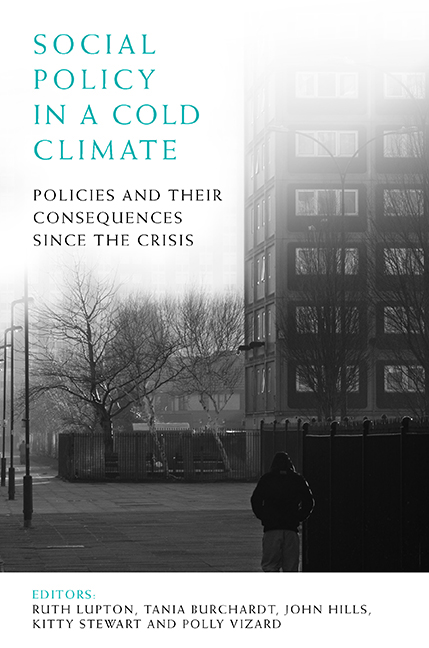Two - Benefits, pensions, tax credits and direct taxes
Published online by Cambridge University Press: 01 September 2022
Summary
What is now often referred to as ‘welfare’ is the most contentious, but often least understood, part of social policy. At its broadest, ‘welfare’ could mean the whole welfare state – including the twothirds of public spending that goes on healthcare, education, housing and personal social services, as well as cash social security benefits, including pensions. At its narrowest – following US terminology, and often accompanied by similar stigmatisation – it could mean cash payments to working-age people who are not in work (about a twentieth of public spending). In between, it could refer to what are, for clarity, described here as ‘cash transfers’ – social security benefits (including state pensions) and tax credits.
A popular perception is that the 1997-2010 Labour government greatly increased spending on benefits and tax credits, particularly for those out of work, creating much of the deficit by the time it left office, and in some versions causing the financial and economic crisis itself. The coalition government coming to office in May 2010 set reducing the deficit as its highest priority, and argued that the ‘welfare budget’ should make a major contribution – albeit with state pensions largely protected. Some of the resultant cuts became among its most controversial policies.
This chapter examines what actually happened to cash transfers in the period since the crisis started, looking at policies in the final years of the Labour government from 2007/08 and under the coalition, levels of public spending, benefit levels and the distributional effects of policy change (including direct taxes) since 2010. These form part, alongside other developments, such as in the labour market (see Chapter Six), of what drove the changes in poverty and inequality discussed later in this book, in Chapter Eleven.
The situation on the eve of the crisis
Labour's aims for poverty and inequality were selective. Child and pensioner poverty were key priorities, alongside wider objectives for life chances and social inclusion. Equality was discussed in terms of ‘equality of opportunity’, not of outcomes, with little emphasis on inequalities at the top.
Correspondingly, Labour's spending increases concentrated on families with children and pensioners. Its emphasis for the working-age population was on education, training, ‘making work pay’ (including the first National Minimum Wage), and support into work.
- Type
- Chapter
- Information
- Social Policy in a Cold ClimatePolicies and their Consequences since the Crisis, pp. 11 - 34Publisher: Bristol University PressPrint publication year: 2016
- 1
- Cited by

